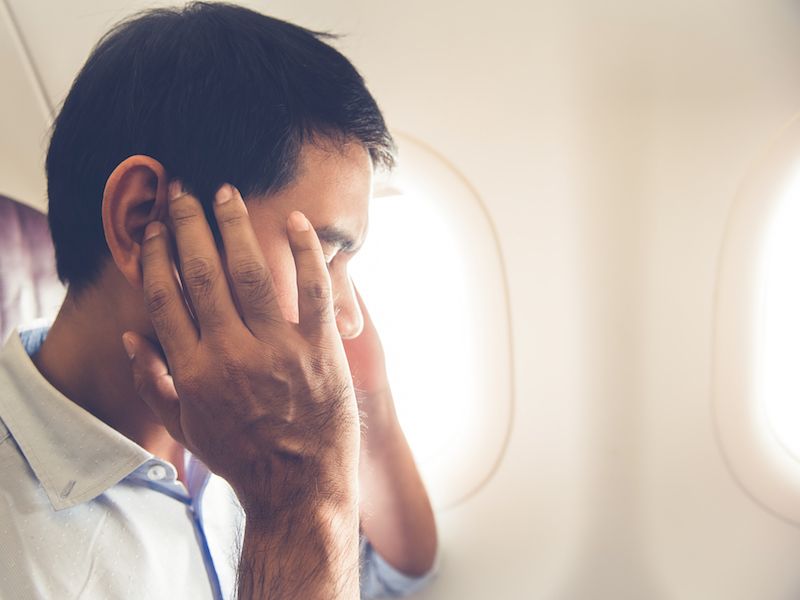You have good days, and you have bad days, that’s normal for people who have tinnitus but why? Tinnitus is the medical name for ringing in the ears, a condition more than 45 million Americans endure, according to the American Tinnitus Association, and that’s accompanied by hearing loss by about 90 percent of them.
But that doesn’t make clear why the ringing is invasive some days and nearly non-existent on others. It is not completely clear why this occurs, but some typical triggers might clarify it.
What Is Tinnitus?
The following phantom noises are heard by people who suffer from tinnitus:
- Hissing
- Clicking
- Buzzing
- Ringing
- Roaring
One of the things that makes tinnitus so disturbing is that you hear it but no one else does. The noise can vary in pitch and volume, too. It might be gone one day and the next it’s a roar.
What Causes Tinnitus?
Changes in a person’s hearing are the most common cause. These changes may be due to:
- Earwax build up
- Noise trauma
- Ear bone changes
- Aging
Some other potential causes include:
- A problem with the carotid artery or jugular vein
- Meniere’s disease
- Acoustic neuroma
- Head injury
- Tumor in the neck or head
- TMJ problems
- High blood pressure
- Atherosclerosis
Sometimes there is no obvious explanation for tinnitus.
See your doctor to have your ears checked if you suddenly observe the symptoms of tinnitus. The issue could be something treatable or even a symptom of a life-threatening condition such as high blood pressure or heart disease. It may also be a side effect of a new medication.
For some reason the ringing gets worse on some days.
It’s a bit of a medical mystery as to why certain days are worse than others for those who have tinnitus. The reason may be different for each person, too. There are common triggers that might explain it, though.
Loud Events
Your tinnitus can be aggravated by loud events such as concerts, club music, and fireworks. If you expect to be subjected to loud noise, your best option is to wear hearing protection. You can enjoy the music at a concert, for instance, without injuring your ears by putting in earplugs.
Another thing you can do is to put some distance between you and the source of the loud sound. When you go to a fireworks display don’t go up front and stay away from the front row at a live performance. Combined with hearing protection, this will lessen the impact.
Loud Noises at Home
Stuff at home can be just as aggravating as a loud concert. Tinnitus can be triggered by a lawn mower for instance. Think about other things you do at home that could be a problem:
- Wearing headphones – It might be time to get rid of the earbuds or headphones. Their function is to increase the volume, and that might be irritating your ears.
- Woodworking – The tools you use can cause a hearing problem
- Laundry – If you fold clothes while the washer is running, for instance.
If there are activities you can’t or aren’t willing to avoid like woodworking, wear hearing protection.
Workplace Noise
Loud noises at work are just as harmful as any other. If you work near machinery or in construction it’s particularly important to wear hearing protection. Your employer will probably supply hearing protection if you let them know your concerns. Spend your personal time giving your ears a rest.
Air Pressure Changes
Most people have experienced ear popping when they fly. An increase in tinnitus can happen from the noise of the plane engine and the shift in pressure. If you are traveling, bring some gum with you to help neutralize the air pressure and consider ear protection.
Changes in air pressure occur everywhere not only on a plane. Taking the correct medication to alleviate sinus pressure is also helpful.
Medication
Speaking of medication, that could also be the problem. Some drugs are ototoxic, meaning they affect the ears. Some prevalent drugs on the list include:
- Antibiotics
- Over-the-counter pain relievers
- Diuretics
Have a talk with your doctor if you experience an intensifying of tinnitus after you start taking a new prescription. Changing to something else could be feasible.
Tinnitus is an irritation for some people, but for others, it can be disabling. The first step is to find out why you have it and then look at ways to keep it under control from day to day.


